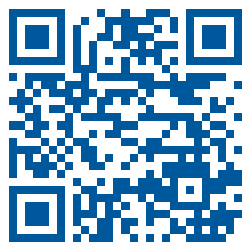 Outpatients Healthcare support workerinSkegnessinSkegness
Outpatients Healthcare support workerinSkegnessinSkegnessPUBLISHED TUE 5 NOV 2024
Key responsibilities include:
- Supporting various clinics such as Surgery, Medicine, and Phlebotomy
- Assisting with patient treatments and planning care
- Ensuring safety and risk assessments for patients
- Performing phlebotomy duties (training provided)
- Maintaining infection control standards
- Managing clinic operations and patient scheduling
- Ordering and stocking necessary resources
- Participating in departmental audits and contributing to team meetings
- Supporting patient needs and acting as a chaperone when necessary
The role offers opportunities for professional development and requires effective communication skills.
An exciting opportunity has arisen in Skegness Outpatients department due to developments of new services and changes in Outpatient clinic requirements and skills. We are seeking an enthusiastic & highly motivated Health Care Support Workers to join our friendly team.
The Outpatient's Department is a busy environment which will offer you a fantastic opportunity to use all clinical and non clinical skills when dealing with the public
Currently clinics are held Monday to Friday, however services have the potential to expand to 7 day a week working. Therefore the successful candidate must be able to work hours flexibly to meet needs of the service.
Skegness Hospital is part of Lincolnshire Community Health Service (LCHS), a busy progressive community hospital providing a variety of services to the local population of Skegness and surrounding areas.
The Outpatient Department facilitates multi-speciality clinics, including Surgery, Medicine, Renal, Vascular, Ophthalmology, Gynaecology, Diabetes, Rheumatology, Paediatrics and phlebotomy services and many more giving a wide variety of development. Training will be given to support facilitation of these services.
The current position would cover Monday -Friday 37.5 hours per week, however, as services develop and expand, this may change, therefore the candidate must be flexible to meet the changeable service need.
Your main role would involve working as a member of the Outpatient team across all services/clinics including phlebotomy to provide a safe, efficient and cost effective service to patients.
Participate in the efficient running of clinics
Contribute to the delivery of care and assist in planning patient treatments
Assess safety and risk to both patients and self, implementing a safe working environment
Assist with carrying out patient's treatments.
To deliver a safe , effective and cost effective phlebotomy service. Training will be given.
Accountable to maintaining and adhering to current infection prevention control guidance
About us
To work as a member of the OPD team and within the Phlebotomy service by providing a safe, efficient and cost effective service to patients.
Run various clinics/phlebotomy service and manages time accordingly, under the supervision of Registered Nurse
Carry out blood samples from patients through Venepuncture following appropriate training.
Ensure specimens/bloods samples are labelled correctly for transportation to laboratories
Assess safety and risk to both patients and self and implement a safe working environment.
Accountable in maintaining current infection control protocols/ standards for yourself, environment and the patient.
Participate in regular departmental audits
To be responsible for ensuring patients are seen within appointment times within clinics and recorded via online booking system - Training will be given
Maintain and order stock control within required time scales for resources required for the OPD service
To have effective communication skills for a wide variety of patient needs.
Act as a chaperone/advocate for patients
Participate in the appraisal assessment process, competencies and attend training and development programmes to meet both individual and service requirement
To support learners within the department obtaining and maintaining clinical/ phlebotomy skills once deemed competent.
To liaise with the OPD team members within team meetings in helping develop and review current and future service needs
Maintain quality in own work and encourage others to do so, whilst working as an effective and responsible team member.

Stand by, we'll show you...